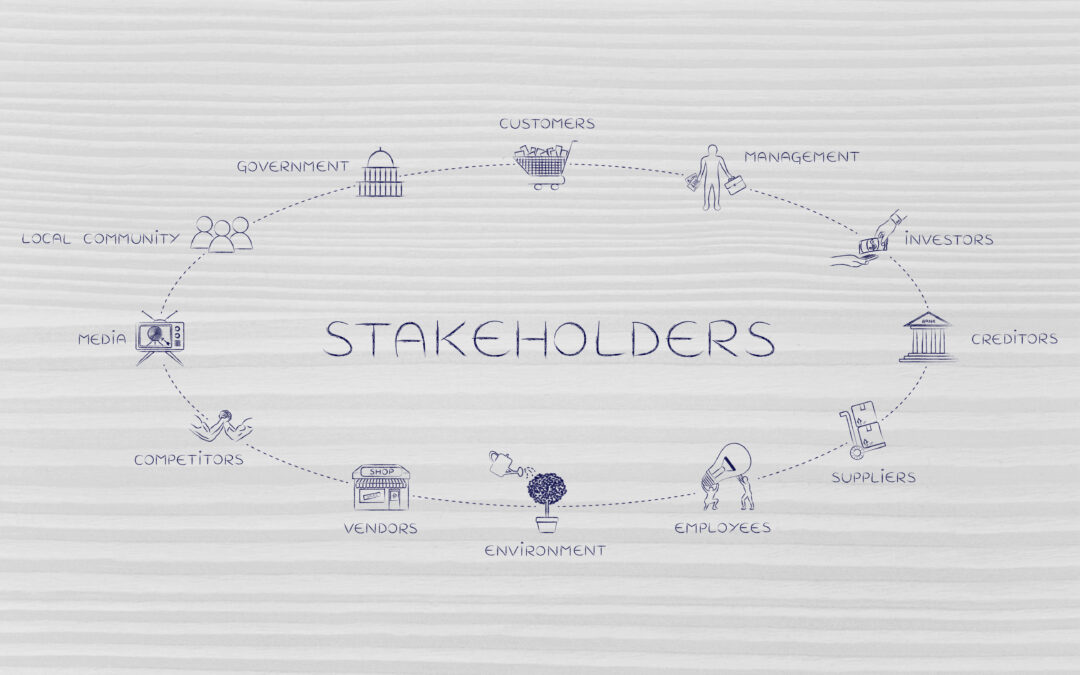Stakeholder capitalism is a concept that has gained ground in recent years, reflecting the idea that companies are beholden to a range of constituents – not just the traditional shareholder. But if shareholders are stakeholders (very important ones at that) then what is the difference between shareholder and stakeholder capitalism?
Shareholders first
To truly understand, we have to travel back to 1970 when renowned American economist, Milton Friedman, published his article, “A Friedman Doctrine: The Social Responsibility of Business is to Increase Its Profits,” in The New York Times.
The doctrine, which has supported economic policy at home and abroad for many years, is focused on the shareholder primacy theory: the notion that shareholder interests come first no matter what. Put another way, Friedman and his contemporaries believed that the sole purpose of any corporation is to maximize shareholder profits. Beyond being in direct conflict with corporate sustainability, and in some cases, legal obligations, the world and the way businesses operate have changed significantly since 1970. It is also worth noting that when we simply look at the numbers, shareholder primacy seems to have little benefit for economic growth.
A new kind of capitalism
Fast forward to today and the “purpose of a corporation” has certainly changed. In fact, the Business Roundtable, an association of chief executive officers leading companies with more than 15 million employees and $7.5 trillion in revenues, acknowledged that the purpose of a corporation is not just to serve shareholders, but “to create value for all our stakeholders – customers, employees, suppliers, communities and shareholders.”
A little over a year on from the redefinition of corporations’ purpose, there is plenty that still needs to be done. However, the mere fact that leaders of some of the world’s largest companies support the idea that long-term value resides in areas outside traditional financial metrics is, to say the least, a leap in the right direction.
Our discipline
Understanding this stakeholder perspective is a part of our research process. Assessing risks and opportunities that lie within material environmental, social and governance (ESG) factors is a foundational element of how we have chosen to invest since our inception. The COVID-19 pandemic has thrust the importance of ESG consideration to the forefront, but for us, it has always been somewhat intuitive. How can a company, and business in general, succeed if it does not consider the care of its employees, the health of its community and surrounding environment?
This is what encompasses our approach to long-term socially responsible investing. It is all but impossible to run a business without healthy, engaged employees and suppliers, prosperous customers and a thriving environment rife with natural resources. A company’s success is nothing unless all its stakeholders reap equal if not greater rewards from its operations and services.
Disclosure: The views expressed above (the “Insight”) are those of the authors and Reynders, McVeigh Capital Management, LLC (“RMCM”) as of the publication date and are subject to change at any time based on market or other conditions. This Insight is for informational purposes only. It does not constitute investment advice or a recommendation to invest in a particular manner. All investments involve risk, including a loss of principal. RMCM assumes no obligation to provide the audience with subsequent revisions or updates to any historical or forward-looking information contained herein.
This Insight may not be reproduced or circulated without RMCM’s written authority.

